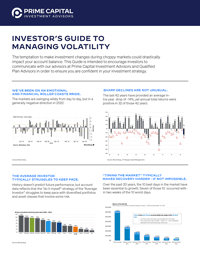As we approach or enter retirement, finding stable and reliable income sources becomes paramount. One key strategy that savvy investors should not overlook is passive investing. This approach allows you the opportunity to generate income with minimal day-to-day involvement. Drawing insights from financial advisors Jason Noble and Andy Merchant in their enlightening podcast “Understanding Passive Income,” we delve into why and how passive investing can be a game-changer for your financial future.
The Basics of Passive Investing
- What is Passive Investing?
Passive investing involves putting your money into investment vehicles that do not require active management. Unlike active trading, passive strategies focus on long-term growth and income through investments requiring minimal daily supervision. This method can be particularly effective for those who wish to save time and reduce the fees associated with active management.
- Why Consider Passive Investing for Retirement?
For retirees, the appeal of passive investing lies in its potential to provide a steady income stream through dividends, interest, or rent. Imagine having a portfolio that pays you regularly, mimicking a paycheck, even when you are no longer working. This income can help cover living expenses and maintain your lifestyle in retirement without requiring constant monitoring or selling assets.
Core Principles of Passive Investing
- Diversification
One of the foundational principles of passive investing is diversification. By spreading investments across various asset classes and sectors, retirees can help to mitigate risks and have the opportunity for more stability of returns. Diversification helps protect your portfolio from significant fluctuations due to market volatility or economic downturns, which could provide for a more stable and predictable income stream.
- Long-term Growth
Passive investments are typically geared towards long-term growth. Tools like index funds or ETFs (Exchange-Traded Funds) mirror the performance of a specific index or sector, offering a hands-off approach to capitalizing on market growth over time. These investments compound, potentially increasing in value and generating wealth without the need for frequent trading or speculation.
Tax Considerations in Passive Investing
- Tax-Efficient Accounts
Utilizing tax-advantaged accounts such as IRAs and 401(k)s is crucial in passive investing. These accounts offer tax benefits that can significantly affect the growth and preservation of retirement funds. For instance, traditional IRAs provide tax-deferred growth, meaning you won’t pay taxes on the earnings until you withdraw them in retirement, potentially at a lower tax rate.
- Impact on Retirement Income
Proper management of taxes on investments is vital for maximizing retirement income. Strategically planning withdrawals from different accounts can optimize tax efficiency and sustain your income longer. For example, knowing when to withdraw from a Roth IRA versus a traditional IRA can save significant amounts in taxes, allowing more of your money to continue growing.
Where and How to Continue Learning
- Resources for Further Education
Staying informed and educated about passive investing strategies is key to successful financial planning. Engage with financial literature, attend seminars, or follow reputable financial blogs and podcasts to keep abreast of new trends and advice. Continuous learning will empower you to make informed decisions that align with your financial goals.
- Professional Guidance
Considering the complexities of investment options and the possibility for tax implications, consulting with a financial advisor is advisable. A professional can provide personalized advice tailored to your specific financial situation, helping you develop a robust investment strategy that ensures a prosperous and secure retirement.
Passive investing could offer the possibility of achieving financial goals in retirement. By understanding its principles and effectively managing its components, you could potentially enjoy a retirement characterized with an added income stream while reducing your exposure to market risks. For a deeper dive into passive investing and to hear firsthand discussions, listen to Jason Noble and Andy Merchant’s podcast series on passive investing. This resource is invaluable for anyone wanting to learn about passive investing and it could help with achieving financial goals. You can find the podcast here: https://primefinancialcharleston.com/20-minutes-of-clarity-pcia-charleston/
Empower yourself with knowledge and take control of your financial destiny. Remember, the journey to retirement is steady and requires careful planning—start your passive investing journey today.
If you’re ready to get started, or if you’re looking for a second opinion on your current strategy, remember, we are here to help with the complexities of retirement planning while keeping your financial goals in focus. Give Jason Noble a call today at (843) 743-2926 or PCIA Wichita (316) 669-9413 to take the first step toward designing a portfolio tailored to your retirement dreams.
This information does not constitute legal or tax advice. PCIA and its associates do not provide legal or tax advice. Individuals should consult with an attorney or professional specializing in the fields of legal, tax, or accounting regarding the applicability of this information for their situations.
Advisory products and services offered by Investment Adviser Representatives through Prime Capital Investment Advisors, LLC (“PCIA”), a federally registered investment adviser. PCIA: 6201 College Blvd., Suite 150, Overland Park, KS 66211. PCIA doing business as Prime Capital Wealth Management (“PCWM”) and Qualified Plan Advisors (“QPA”). Certain services may be provided by affiliates of PCIA.
061024004 JG





